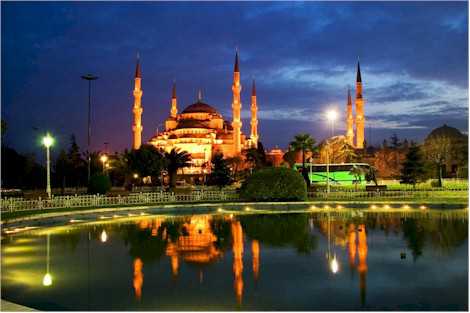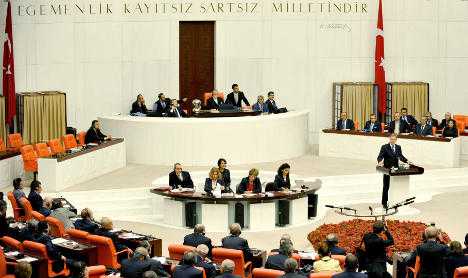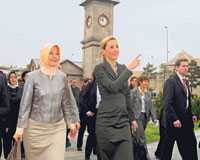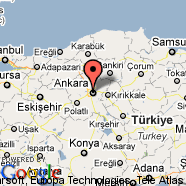Wrapping up his five-day trip to Turkey, German President Christian Wulff was full of praise for the hosts: In crucial political questions there was broad agreement, he said.
The German president concluded his trip to Turkey with a call for more exchanges in education, ideas and culture. Christian Wulff and his Turkish counterpart Abdullah Gul together laid the foundation stone for a new German-Turkish university in Istanbul.
The project will combine the strength of both of the two countries systems of higher education, President Wulff said. Around 5,000 students are to begin studies at the university next year. German universities are to provide professors and teachers and the courses are to be taught mainly in German.
Wulff visited the Blue Mosque in Istanbul
At the close of his visit, Wulff described the five days as “extremely positive.”
“I have felt at every stage the trust felt towards Germany,” he said on Friday. He said key issues had been discussed openly, and there had been agreement on all the essential political questions. Turkey, he said, was on its way to becoming a successful economy.
Religion and integration topping the agenda
Wulff’s visit was the first by a German president to Turkey in more than a decade, and came at a time of heightened tension in Germany itself over the place of its ethnic minorities, of which Turks form the largest group.
Wulff also became the first German head of state to address the Turkish parliament. In his speech on Tuesday, the president explicitly addressed the problem of the integration of Turkish immigrants in German.
“Our fellow citizens of Turkish origin are welcome in our country, and belong to our country,” he said. “As their president, I urge every immigrant to actively integrate in German society.”
Wulff was the first German president to adress the Turkish parliament
Germany has around four million Muslims among its population of 82 million, with 2.5 million Turks forming the largest ethnic minority.
Wulff also pushed for more freedom of religion for Christians within Turkey, taking part in a church service in the southern city of Tartus, said to be the birthplace of Paul the Apostle.
On Friday morning, the German president met with Bartholomew I, the Istanbul-based Greek Orthodox Patriarch of Constantinople. He later visited the Blue Mosque and the Hagia Sophia, formerly a Christian church.
Author: Andreas Illmer (apn, dpa)
Editor: Chuck Penfold
via President Wulff describes Turkey trip as extremely successful | Germany | Deutsche Welle | 22.10.2010.
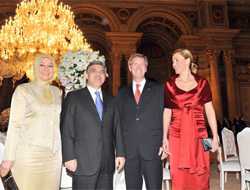 Turkish President Abdullah Gul hosted a dinner in honor of German President Christian Wulff in Dolmabahce Palace in Istanbul on Thursday.
Turkish President Abdullah Gul hosted a dinner in honor of German President Christian Wulff in Dolmabahce Palace in Istanbul on Thursday.
